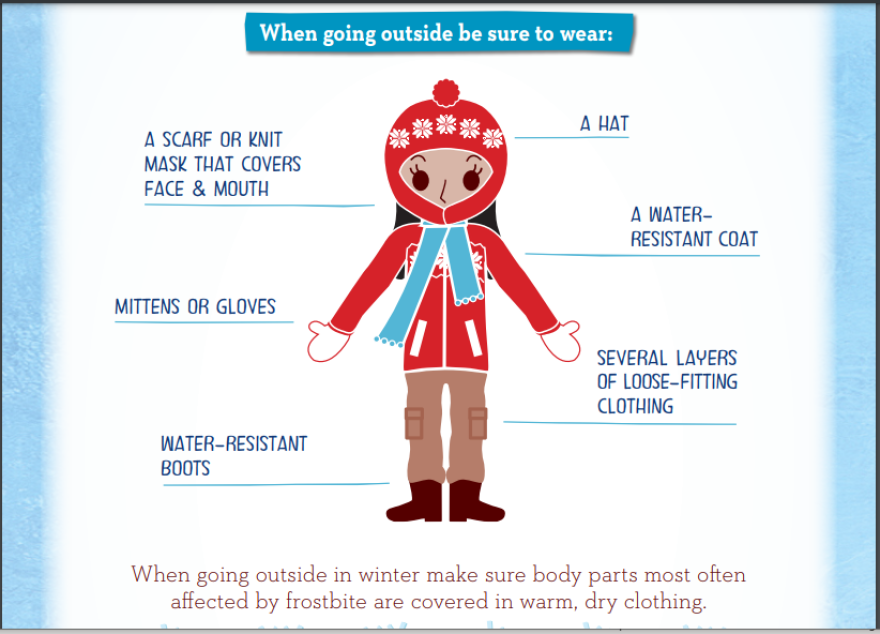Louisville health officials are warning residents to take precautions to avoid serious cold weather injuries like frostbite and hypothermia.
The Louisville Metro Department of Public Health and Wellness said with temperatures not expected to top freezing until early next week, residents should be prepared.
Hypothermia can happen after prolonged exposure to cold temperatures, when the body starts to lose more heat than it produces, according to the Centers for Disease Control and Prevention (CDC).

Warning signs include shivering, exhaustion, confusion and memory loss.
Dr. Zach Harris, director of emergency services at Norton Audubon Hospital, said it’s also bad when a person stops shivering, because that’s the body’s defense against cold. Confusion and memory loss can make the situation worse.
“If you're really, really cold, and then you start losing the ability to make good decisions, you could be in a bad spot pretty quick,” he said.
The CDC advises that if a person is suspected to have hypothermia, try to warm them up and get emergency care immediately.
Frostbite happens when the skin gets too cold, causing ice crystals to form in and around cells.
Harris said the first sign is usually a prickling sensation, followed by pain.
“From there, your extremities, your fingers, your toes, your nose, they might go numb, and then you might lose the ability to feel or move them,” he said. “That's when you know you're in trouble.”
Harris said if possible, avoid going outside during weather this harsh, especially people with underlying health conditions or who are older.
He said if it’s necessary to go out, wear layers and avoid cotton base layers if doing something strenuous. This can cause sweat to get trapped, making the body colder.






